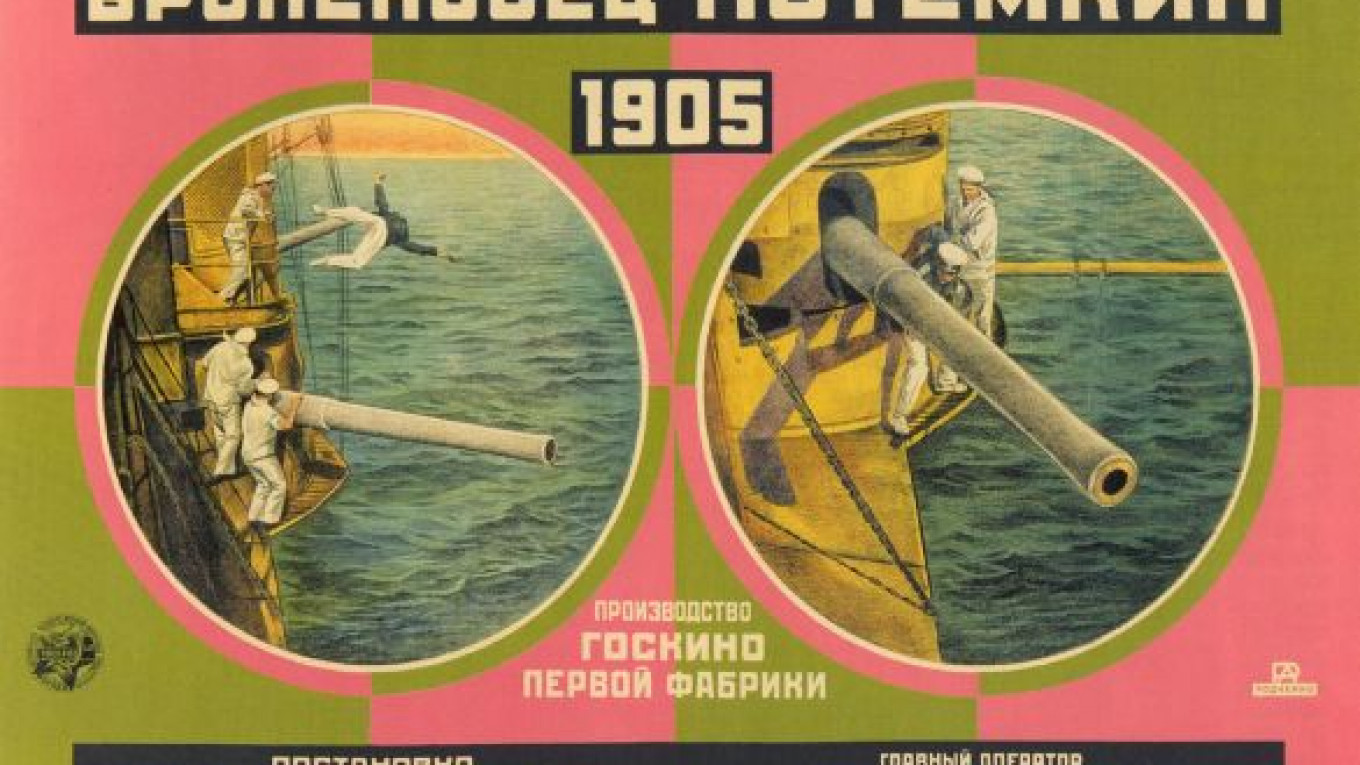Moscow’s oldest movie theater, Khudozhestvenny, will celebrate its centenary with a free retrospective festival of movies — including classics such as “Moscow Does Not Believe In Tears” — that have debuted at the cinema on Arbatskaya Ploshchad over the last one hundred years.
“We decided to give a gift to all true cinema lovers,” said Yevgeny Ivanovich, the cinema’s administrator. “For two weeks, we will show classic movies that are now considered treasures of Russian cinematography.”
Khudozhestvenny cinema, the oldest in Russia, was opened in 1909 by businessman Robert Broksh. Eduard Broksh, a descendant of Robert Broksh, told a news conference last week about how his family who later emigrated would tell of a grand, luxurious cinema that once belonged to them.
The cinema has seen some of the most famous moments in Russian cinematic history. Sergei Eisenstein’s “Battleship Potemkin” had its premiere at the theater Jan. 18, 1926, the first Russian movie with sound opened in 1931 and the first color film in 1936. Pioneering documentary filmmaker Dziga Vertov, whose work inspired the cinema verite, or truth cinema, movement in the 1960s, had his first showing in the Khudozhestvenny.
Apart from “Battleship Potemkin,” one of Stalin’s favorite films “Circus,” about an American circus worker who is shunned in her home country because of her black child but finds equality and racial tolerance in the Soviet Union, “Volga-Volga,” a 1930s comedy set on a steamboat, and classic war drama “The Cranes are Flying” are among the films that will be shown.
“The movies were filmed in the Soviet Union, but people in contemporary Russia still love and remember them. When else can you watch a 1957 film on a big screen?” said Ruslan Orestov, the cinema’s director.
The movies, starting Wednesday, will be shown in chronological order so that viewers can see a century of Russian cinematic art. “Battleship Potemkin” will also be shown during the festival.
“All movies will be presented for free,” Ivanovich said.
In the last few years, the cinema has introduced a policy of premiering all new Russian films with free entry.
“Practically all of my films were shown in this cinema,” director Alla Surikova said at a news conference last week, Russian media reported. “It is very important for us, as few cinemas take Russians films.”
“I think that every director should have a chance to show their films to viewers; they should have a way open to them for their first steps,” she said.
A cake in the shape of the cinema will be cut Wednesday on the grand opening night where the French film, “Georgetta,” will be shown as it was a hundred years ago at the movie theater’s opening.
As part of the centenary celebrations, the movie theater put up a monument to cinema tickets, which can be seen in the foyer.
Khudozhestvenny’s staff hopes that the anniversary event will help draw attention to the need for restoration of the movie theater, which is on the city protected list as a building of historical importance.
The building was due to be restored in the next few years, but that has been delayed because of the financial crisis.
The Khudozhestvenny centenary festival runs Nov. 11 to Nov. 23. Khudozhestvenny movie theater, 14 Arbatskaya Ploshchad. Metro Arbatskaya. Tel. +7 (495) 690-5342. www.arbat-moskino.ru.
A Message from The Moscow Times:
Dear readers,
We are facing unprecedented challenges. Russia's Prosecutor General's Office has designated The Moscow Times as an "undesirable" organization, criminalizing our work and putting our staff at risk of prosecution. This follows our earlier unjust labeling as a "foreign agent."
These actions are direct attempts to silence independent journalism in Russia. The authorities claim our work "discredits the decisions of the Russian leadership." We see things differently: we strive to provide accurate, unbiased reporting on Russia.
We, the journalists of The Moscow Times, refuse to be silenced. But to continue our work, we need your help.
Your support, no matter how small, makes a world of difference. If you can, please support us monthly starting from just $2. It's quick to set up, and every contribution makes a significant impact.
By supporting The Moscow Times, you're defending open, independent journalism in the face of repression. Thank you for standing with us.
Remind me later.


